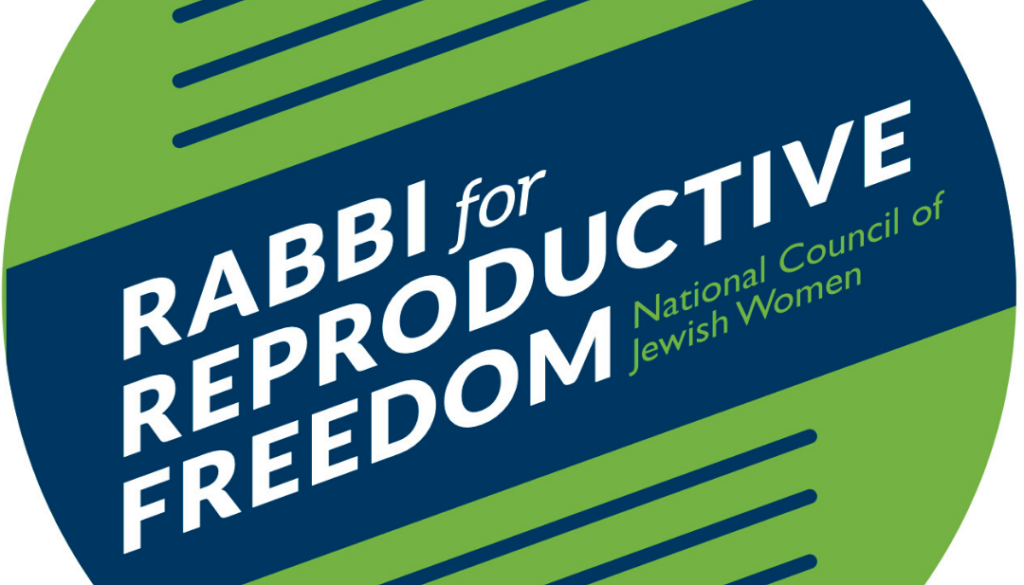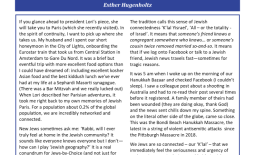Context Is Everything
Please allow me to start this sermon with oversharing.
One of the weirder trivia about me is that I had three children in three different countries. My oldest was born in the Netherlands; my middle child in the United Kingdom, and my last child in the United States.
Each of these countries provides a different context regarding childbirth; and the pre-, peri- and post-natal care received.
This also applies to prenatal screening, diagnostics and possible pregnancy termination. In the Netherlands, at age 34, I was offered standard screening with a choice to opt-in to more genetic testing. By the time I was pregnant at age 36 in the UK, I was offered advanced screening. In the USA, at age 40, deemed an ‘advanced geriatric multigravida’, I found myself sitting in the office of a genetic counsellor, signing the paperwork on a suite of screenings for trisomies and other potential congenital issues in line with our family’s genetic heritage.
Each of these experiences prompted their own philosophical responses. I sought out the opinion of a well-respected and competent rabbi before embarking on growing our family with our third. Rabbi Elliot Dorff is one of the Conservative Movement’s prominent bio-ethicists and he taught my rabbinical school classes about Halakhah and bio-ethics. I reached out to him with a specific ‘she’elah’, a halakhic question. I knew the answer, being a rabbi myself, but I needed to bring an external moral, pastoral and theological voice to my internal perspective. The question was: what are the competing values between fulfilling the mitzvah of p’ru ur’vu (procreation) thereby growing the Jewish people versus navigating the risk of pregnancy termination due to severe congenital birth defects? I had, after all, fulfilled the core mitzvah as defined by classical Halakhah by having one child of each gender and was now of more advanced reproductive age. I made a determination that I wanted to enter this process in thoughtful, deliberate, moral and holy way.
My Rabbi ruled leniently. He had counseled many Jewish women on the right to, and even obligation of pregnancy termination. Those reasons are complex, unique and above all, private. This wise rabbi, versed in this body of Jewish law and the evidence-based medical ethics undergirding it, offered me the morality and hope of sacred agency. ‘Go for it,’ he said. ‘The Jewish tradition is here to support you in any heartbreaking decisions you may or may not face. You wish to grow your family and add to the Jewish people. Our tradition guarantees a woman’s right to her own reproductive agency.’
With those words nestling in my heart, we started our journey, and over three years later, we have a delightful, rambunctious toddler who has completed our family and lit up our souls with unfathomable joy during the dark night of the pandemic.
I am sharing this rather private story because it shows the inner workings of Jewish ethics. It demonstrates how the abstract and concrete intersects; where real Jewish wisdom – through the compassionate voices and teachings of our sages, peers and loved ones – can offer spiritual sustenance and moral guidance in ways that affirms life, grants choice and centers love, agency, health, wellbeing and holiness. And yet, something held me back. Isn’t this too personal? Doesn’t this violate a boundary between the rabbinic and personal? More importantly, how does such an account affect the listener and their experience? Mine is a happy one; but layered beneath saccharine ideals of family and fertility lie worlds of pain; of infertility, loss, grief, and in some cases, lack of consent, abuse or grinding poverty. My story is an incredibly privileged one that does not center around loss or deprivation. But it does center around choice, obligation and agency. By telling it, we can demystify conversations around pregnancy and birth, abortion access and Jewish bio-ethics. I bring you this story to dismantle the structures of shame; to model that in order to truly equip ourselves, for morality and justice, we need to bring our stories into the light: the easy ones and the hard ones. As of this week, with the leaked threat to Roe versus Wade, the stakes have become all the higher.
Context matters.
This week’s portion, K’doshim, is all about this kind of context. There is a charge that opens the portion: ‘k’doshim tehiyihu’, ‘you shall be holy.’ This charge is then contextualized throughout Leviticus chapter 19, addressing what the Torah considers ‘holy’ or ‘set apart’ conduct, in both ritual and ethical matters. If we zoom out further, chapter 19 is bookended by chapters 18 and 20; both intensely controversial chapters that focus on cultic purity and the Torah’s understanding of sexual ethics, refracted through the lenses of power and patriarchy. At the heart of the heart of the Torah is nestled, of course, the famous commandment ‘v’ahavta leire’acha kamocha’, ‘you shall love your fellow as yourself.’
As the war over reproductive rights rages in this country, I often think how different my experience was in Europe. I felt like I had resources; economically, socially and morally. I knew that a child with a disability would be cared for; in the context of a social safety net. My choices were not made in a vacuum; but in the context of a society that (for the most part) ‘leaves the corners of the field for the gleaners.’
For my American pregnancy, the context was one of concern, despite the competent and compassionate care received. When I was newly pregnant, the Iowa State legislature was trying to pass a so-called fetal heartbeat bill. If we lose reproductive freedom, we will lose a core pillar of justice that allows that choice and agency. At the same time, Leviticus reminds us that reproductive freedom and justice are all about context: regarding lack of healthcare access, economic and racial disparities, maternity mortality rates, questions of parental leave and social provisions, LGBT rights and the evolution of an anti-choice theology that is not necessarily indigenous to the many diverse expressions of American Christianity.
Against these forces, we bring our voices. We bring the charge of ‘K’doshim tehiyihu’. In past sermons, I have preached on the underpinnings of Jewish reproductive ethics. This time, the clarion call must be louder. We must not and will not cede the language of sanctity to those who wish to strip us of our human rights. The Jewish argument of access to abortion is a Halakhic, moral and holy argument. It is not only a matter of bodily autonomy but of religious freedom—the freedom for all of us to practice our Judaism; of non-Christian faiths, of pro-choice Christians and of the irreligious to shape their own moral coherence, free from coercive religion. ‘You shall be holy’ is a charge to the majority of Americans who do support abortion access and reproductive rights, poll after poll after poll. Leviticus reminds us that context matters: the context for holiness always needs to be justice.
Parashat K’doshim speaks so powerfully to this: provisions for the economically disadvantaged (19:9), economic ethics (19:13 and 19:35), considerations for the differently-abled (19:14), the guarantee of fair and impartial legal process (19:15) and protections for immigrants and refugees (19:33). The ethical imperative of holiness and justice is not merely aimed at one constituency; it applies universally. The Levitical vision is a comprehensive one of integrated social equity. We are indebted to previous generations who fought bravely for abortion rights; our elders remember the times before. We will not turn back the clock. We will push forward. None of us are free until all of us are free.
Let us make it so. Join myself and our synagogue contingent this Sunday at 1 pm at the Pentacrest, demonstrating for reproductive rights. I will end with the words of Pirkei Avot 1:14: ‘Im ein ani li, mi li. Uchshe’ani l’atzmi, mah ani. V’im lo achshav, ematai?’ – ‘’If I am not for me, who will be for me? And if I am for myself alone, what am I? And if not now, then when?’




